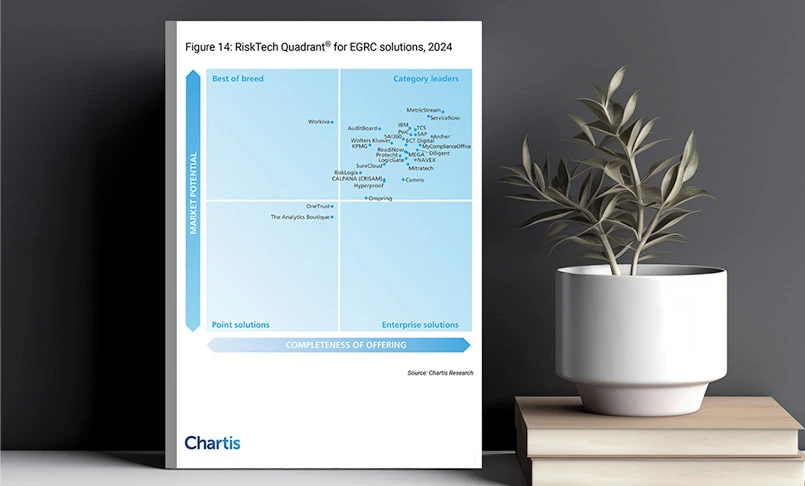Through the GRC Lens: January 2019
- Compliance Management
- 14 February 19

Introduction
A Chinese tech giant faces criminal charges in the US, a major bank in India fires its CEO, and an embattled Silicon Valley titan beats Wall Street estimates — here’s January through the GRC lens.
Huawei Faces Criminal Charges in the US
Federal prosecutors unveiled a host of charges against Chinese telecom giant Huawei and its chief financial officer Meng Wanzhou in January. The prosecutors alleged that the company stole trade secrets, obstructed justice, and committed bank fraud in an effort to circumvent the sanctions against Iran.
In one indictment, prosecutors accused Huawei and its top financial officer of misleading banks and US investigators about its relationship with a longstanding affiliate in Iran, Skycom. According to reports, Huawei falsely claimed that it had sold off its interest in Skycom when in fact it controlled the company. Huawei’s American subsidiary then destroyed evidence and moved witnesses with knowledge of Skycom from the US back to China.
Another indictment by the prosecutors revolves around the theft of trade secrets related to a robotic device called “Tappy,” made by T-Mobile, according to The Wall Street Journal. The Wired reported that if Huawei is convicted of all charges, it faces problems bigger than just fines.
ICICI Bank Fires Its CEO
India’s second-largest private sector lender sacked its former managing director and CEO, Chanda Kochhar, after a panel found her guilty of violating the bank’s code of conduct and making inadequate disclosures.
According to reports, there was a lack of diligence from the former CEO in dealing with conflict of interest and due disclosure while sanctioning loans. The loan, to the tune of $425 million, was made to the Videocon group, allegedly quid pro quo.
Following the scandal, the country’s top economic regulator initiated a money-laundering probe against those involved, including Kochhar’s husband and the chairman of the Videocon group.
The former CEO will also have to return bonuses accumulated over 10 years.
Facebook Posts a Record Profit Despite Scandals
Facebook proved naysayers wrong by posting a record $6.9 billion profit for the last three months of 2018 — a jump of 61% from the same period in 2017 and well ahead of Wall Street estimates, according to CNN.
Despite making headlines last year for scandals involving the spread of disinformation, mishandling of private data, and election meddling that invoked the ire of regulators around the world, the company seems to have surprisingly gained more users. According to estimates, 1.52 billion people use the social network every day, and 2.32 billion use it every month — both of which represent a 9% increase from 2017.
The strong results come after the company said that it expected its growth to slow as it spends more to improve the privacy and security of user data.
The Low-Down
US regulators are tightening the reins on companies like Huawei that have been accused of compliance failures while trying to advance their own interests. Huawei’s latest indictments bear similarities to what happened to another Chinese telecom giant, ZTE, that admitted to violating US sanctions and ended up paying a whopping $1.9 billion in penalties, also while agreeing to replace its entire board and senior leadership, and open itself to US auditors.
According to reports, the same fate might await Huawei if the company is convicted. US financial institutions could be banned from doing business with the company — a move that is likely to have a significant impact on the telecom equipment provider’s bottom-line.
The ICICI Bank case highlights governance issues in developing economies like India. According to a report by The Hindu, global rating agency Standard and Poor’s (S&P) noted that developments around the case and the changing stance of the bank’s board of directors show “weak governance and transparency in the Indian banking sector.” However, the agency agreed that the board’s claw back of bonuses and benefits when a person is proved to be at fault is an important check that aids accountability and good leadership. More such measures are required in the country’s banking sector to avoid recurring scandals of a similar nature.
While Facebook’s endless crises do not seem to be hurting the company’s business for now, time will tell if the social media giant can sustain its growth in the long term as regulators begin to question its business practices. Data privacy laws like the European Union’s (EU’s) General Data Protection Regulation (GDPR) have already forced powerful tech companies to restructure their business models, while France’s latest tech tax is another indication that regulators are trying to rein in the unbridled power of the tech titans.







